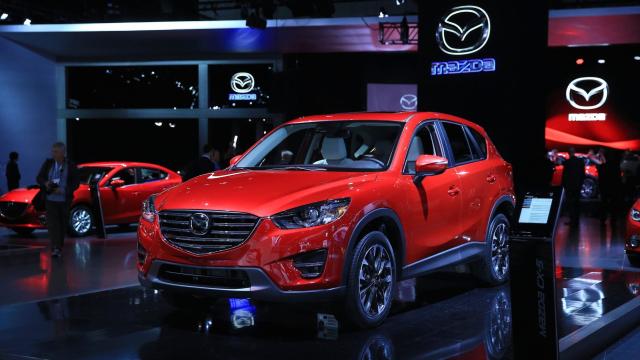If you could only listen to one radio station for the rest of all time, what would you choose? It’s a moot question for some Mazda owners in Washington state’s Puget Sound region, whose onboard infotainment systems are stuck in a reboot loop that keeps the dial stuck on one specific radio station.
Apparently, owners of the affected Mazda vehicles have only been able to tune into the local broadcaster and NPR affiliate KUOW (94.9 FM), with reports indicating all functionality of the infotainment system has been disabled other than the volume knob. While it’s playing NPR, the onboard display shows it is stuck in a reboot loop.
KUOW is itself at a loss to explain why it suddenly has a captive audience, the station reported, other than speculation it might have something to do with the retirement of 3G networks and rollout of next-generation 5G networks across the country. While that’s a shift expected to screw with and in some cases effectively brick technology relying entirely on the older standard, the station argued that doesn’t explain why many different models of Mazda are experiencing the same bug. According to the Seattle Times, Mazda headquarters said the cause was KUOW’s transmission of album cover images without a valid file extension, which possibly caused the onboard software to flip out when it tried to open them.
Mazda didn’t respond to Gizmodo’s request for comment, but we’ll update this piece when we hear back.
With cars increasingly dependent on software, glitches and oversights have been identified as responsible for everything from a hydraulic electronic control unit failure that disabled safety systems in Mitsubishi vehicles to Fords whose engines fail to turn off. Tesla is facing federal scrutiny over the rollout of its self-driving and autopilot software, which has been tied to numerous crashes and issues like incorrect collision detection resulting in unnecessary braking. Even when the software is working fine, server outages can cause problems, as when many Tesla owners across the globe found themselves unable to unlock their cars last year.
There is no known fix for the Mazda issue short of full replacement of the Connectivity Master Unit (CMU), an expensive component that controls the entire onboard display.
“I tried rebooting it because I’ve done that in the past and nothing happened,” Scott Smith, a Seattle-based Mazda CX-5 owner, told KUOW. “I realised I could hear NPR, but I can’t change the station, can’t use the navigation, can’t use the Bluetooth… Luckily I am an NPR listener so that’s fine.” Smith added that when he took his car to a Mazda dealership, he was informed he was one of “hundreds” of people waiting on a fix.
The Times reported similar issues have plagued owners of Mazda vehicles made between 2014 and 2017. Area resident Dave Welding told the paper the glitch also wiped out Bluetooth, navigation, the clock, and vehicle statistics. But it didn’t disable his Mazda’s screen, which varied between the regular Mazda logo that shows when starting a vehicle, flashing, and a corrupted version of the logo. He covered it with cardboard.
The bug disabled “Many of the features I paid for when I bought it new,” Welding told the Times. “…The lower right field of my vision was seeing like a TV screen going on and off.”
In the KUOW article, station spokesperson Michaela Gianotti said management is “in contact with Xperi, the company who owns the technology behind HD Radio, and have given them complete access to our transmitters to investigate what is causing this issue.”
According to the Times, Mazda has also informed owners via email that they can submit a “goodwill request” to the Mazda Warranty department for a free repair of the affected component. Welding told the Times that Seattle’s Lee Johnson Mazda had originally quoted him $US1,500 ($2,082) to replace the CMU.
